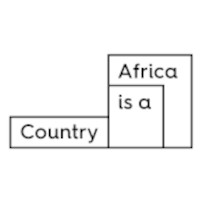Materially speaking, oil is simply a sticky, black goo. It doesn’t have any innate power separate from the kind of society we live in—capitalism.
Oil and gas platform in the Gulf of Guinea. Image credit Jan Ziegler via Shutterstock.
There’s been a lot written on the history of oil over the last 50 years. Two classic accounts are Daniel Yergin’s The Prize and Anthony Sampson’s The Seven Sisters. Both these books narrate the rise of the big Western oil companies across the 20th century. They are rich in detail and full of fascinating vignettes but are highly personalized in the way they tell the story of oil. Their focus is on the individuals who led the big oil companies and their ruthless determination to control global oil supplies. What they largely ignore are the bigger social and economic realities that shaped oil’s emergence as the world’s principal fossil fuel.
Crude Capitalism was partly written as a critique of these kinds of approaches to oil. My starting point is that—materially speaking—oil is simply a sticky, black goo. It doesn’t have any innate power separate from the kind of society we live in. And that society is capitalism, a historically distinct social system characterized by endless accumulation, a drive to continually accumulate money that overrides all other considerations. If we are to truly understand oil’s place in our energy order, we need to foreground the priorities, logics, and behaviors that are conditioned by this social system.
In taking this approach, I was inspired by a range of other recent writing. These include Andreas Malm’s Fossil Capital, Matt Huber’s Lifeblood, and Hannah Appel’s The Licit Life of Capitalism: US Oil in Equatorial Guinea. Each of these books is written in an engaging style, weaving their historical narrative into a deeper analysis of what capitalism means for the production and consumption of fossil fuels.
One of the advantages of this approach is that it pushes us to consider what oil does for capitalism after it is refined and turned into something useful. In this respect, most of us tend to think about oil simply in the form of petrol and other liquid fuels. We often forget about another hugely important set of refined oil products: petrochemicals and plastics. The petrochemical revolution turned oil into much more than simply a fuel: as a raw material, it became a basic input into just about every commodity that surrounds us today.
Pioneering work on this synthetic shift is the writing of US ecologist Barry Commoner, especially his book The Closing Circle. There is so much we can learn from Commoner today, but he’s often missed in contemporary debates on climate and ecology (perhaps because he also insisted on thinking seriously about capitalism). More recently, the work of Alice Mah on petrochemicals is extremely illuminating. Her book Plastic Unlimited: How Corporations Are Fuelling the Ecological Crisis and What We Can Do About It, is a powerful critique of the petrochemical industry and its connection to the imperative of limitless growth.
An important theme of my book is oil’s connection to European colonialism, its place in postwar national liberation struggles, and the subsequent rise of a US-centered world order. Two books that make important contributions in this respect are Christopher Dietrich’s Oil Revolution and Giuliano Garavini’s The Rise and Fall of OPEC in the Twentieth Century. The great merit of these books is their careful attention to transnational anti-colonial networks and the ways that oil shaped both the practice and thinking of liberation movements in the Global South.
In thinking about colonialism, we need to move beyond simply a view of oil as a material substance, and also consider what happens to oil wealth: who earns it, what currency it is denominated in, and where it goes. Here, I learned much from Stephen Galpern’s Money, Oil, and Empire in the Middle East: Sterling and Post-War Imperialism, 1944–1971. This fascinating book connects Britain’s Middle East oil strategy to concerns over the strength of British sterling. In doing so, it shifts the way we think about the control of raw materials such as oil. Another essential book on this topic—examining the period following the end of British colonialism—is David Spiro’s The Hidden Hand of American Hegemony. In this pathbreaking book, Spiro presents one of the first accounts of how post-war American financial power was connected to the recirculation of Saudi oil wealth into US financial markets.
Of course, the overarching question of any book on oil is the reality of the climate emergency. Here, I’ve found the work of Ian Angus, who runs the Climate and Capitalism website very useful. Angus’ book, Facing the Anthropocene: Fossil Capitalism and the Crisis of the Earth System, is a well-argued defense of eco-socialism and is written in a way that conveys the scientific research on climate change in a clear and straightforward manner. Angus’s approach is grounded in Marx’s concept of the metabolic rift—the idea that capitalism inevitably disrupts the “metabolic” interaction between humans and nature. The theoretical underpinnings of this idea and their implications for political movements are richly explored by John Bellamy Foster, Brett Clark, and Richard York, in The Ecological Rift: Capitalism’s War on the Earth, and also John Bellamy Foster’s The Vulnerable Planet: A Short Economic History of the Environment. Adrienne Buller’s recent book, The Value of a Whale is also a remarkably lucid critique of “green capitalism” and the attempts to commodify nature that are now being advanced in the guise of climate action.
Crude Capitalism: Oil, Corporate Power, and the Making of the World Market (2024) by Adam Hanieh is available from Verso Books.






